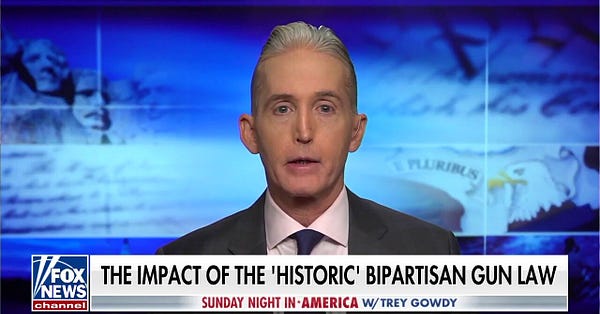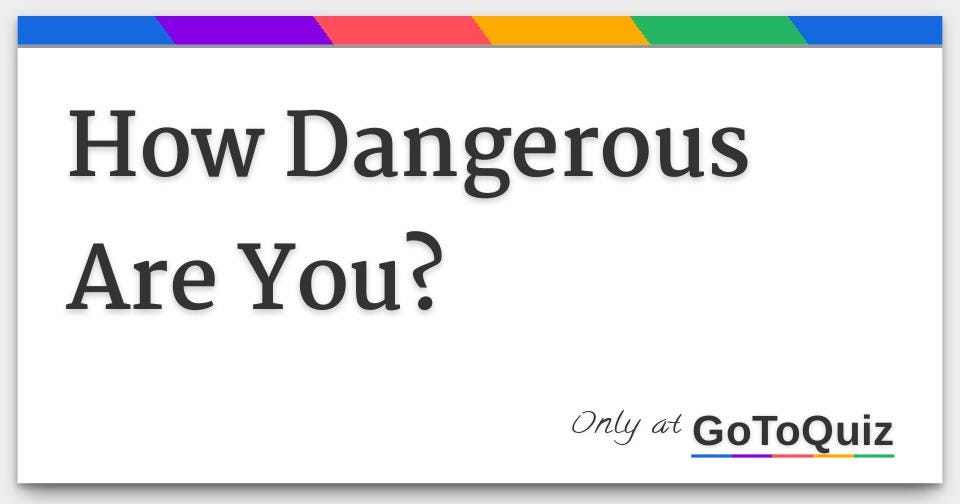due consideration of due process
tearing down chesterton's defense against tyranny
question: why are so many modern pundits adopting images that make them look like they are auditioning for a role as “scary capital city oppressor” in the hunger games?
i mean, i can’t be the only one noticing this.
might there be something to the whole “fascism begets fashion” claims?
because here we go again.
more bad takes from aspiring authoritarian apologists seeking to sacrifice rights upon the altar of “the public good.”


this is pretty dazzling stuff. apparently not content with redefining everything else, the talking point tornado now wants to redefine “due process.” and this should worry you because whoo-doggie is that a slippery slope.
but first let’s give the other side the benefit of the argument in their own words that we may joust with real views and not strawmen. gowdy opines as follows:
and this is a line of reasoning as deadly dangerous as it is desperately inaccurate in both premise and deduction.
due process most emphatically does NOT apply to being passed over for promotion at work. that is a private matter between private actors. conflating the two gets us off to an extremely weak start as this whole line of reasoning appears rooted in false analogy used to basically say “due process is what we say it is!”
that is a “commerce clause” level misreading of the constitution and can underpin even more egregious power grabs.
he then poses a question that basically boils down to “if people say you might be dangerous, should we take away your rights based on suspicion and not action?” as the purportedly reasonable notion of “preventing bad outcomes.”
note that this rhetorical framing tacitly renders a right to gun ownership a privilege and not a right at all. that’s quite a serious inclusion by presumption. the question of “would we have any just or legal right to do so if we did?” goes begging.
and this matters greatly as we’re not talking about questioning here or investigation but rather conviction and sentencing for crimes not committed. functionally, this is like jailing someone over suspicion as to what they might do.
it’s a funny thing, but i do not see the text “unless people say they’re scared of you” anywhere in the second amendment and unless someone discovers them i think from a legalist standpoint, we’re pretty well bound by “the right of the people to keep and bear arms, shall not be infringed.”
so this argument is pretty much a loser right from the start.
but legalism is, to my mind, a weak argument when seeking to establish general case answers and broad ethical principles. many awful, immoral, and outright stupid things have been at one time or another instantiated into law. legal does not mean ethical or just. it just means “codified.” justification by such is always going to be unsatisfying.
so let’s examine the rest of this:
consider where this doctrine of presumptive rights suppression leads.
shall we also deprive those who the government decides are “dangers” of other rights based on hearsay and no crimes in evidence?
shall we take away their knives and their cars and their pilot’s licenses?
shall we bar their purchase of anything that could be a poison or start a fire?
all those things can be used to devastating effect.
and if we will not do so, can anyone really claim with a straight face that this is about stopping the dangerous and not a hobbyhorse quest against guns?
and why stop at killers? what of possible rapists or robbers or “insurrectionists”?
and that last one is always the endgame and so a question must be asked:
just who is going to decide precisely what “dangerous” is? the state? the same state that got caught trying to inflate domestic terrorism reports by ascribing “anything we don’t like” up to and including “disagreeing with school boards over masking” to “terrorists?”
note that they include “law enforcement officers” in the list of folks who get to report you.
officer friendly and and “glowie the fed” say you’re a threat to the state because you posted stuff on the internet. judge smails rubber stamped it. now we come for your rights. resist and we’ll kill you.
this is presumptive thoughtcrime. it’s riskcrime. it’s demanding a right to convict for that which exists only in potential and has never been acted upon.
that’s pretty sinister stuff. you sure you want that power lying around where politicians you hate can grab it? because regardless of who wields it now, one day the elected example of what you despise will wield it too.
anybody seeing any dangerous risks for “increase in scope” and “nasty partisan politicization” there?
because i sure do.
now consider how this same argument applies to other rights. maybe you don’t care about guns. OK. how about speech?
“if a family member or law enforcement officer credibly believes someone is a threat to themselves or others” we should take away their speech.
they will use it to wreak harm, oppose the state, spread misinformation, and foment unrest.
if this sounds at all far fetched to you, i must sincerely ask, “just where have you been living for the last 3 years.” because it was certainly not in the english speaking world.
perhaps you missed the “speech arrest” in the UK for posting a meme parodying the rainbow flag and the movement behind it? their literal justification for incarceration was “someone reported being made anxious by your tweet.”
it contained no threats, direct or otherwise. rendering the gender flag as a 4 panel to make it resemble a swastika can certainly be accused of being in poor taste, but it is not violence nor threat.
also note that he is not a nazi, he was comparing the other side thereto as a criticism.
but so long as we allow words to be treated like violence the intersection between that false equivalence and the taking of rights for “worrying people about possible harm” will be a profoundly nasty place.
the effect on the right to speech will even more be chilling once the lexical legions start redefining words

mostly, this due process argument is one rooted in emotion and comes back to the topic of misrepresenting perceptions about precisely what is on the tracks in a trolley problem while also claiming a collectivist right to pull the lever if it serves a common good.
the problem is that reality so often looks like this wonderful graphic from julius ruechel in his excellent piece that a reader was kind enough to turn me onto.
this is the essence of so much government policy and ploy: you think you are sacrificing one to save 5, but you miss the 9 (or 90) who are hidden from view. worse, you’re persuaded not to ask who tied them to the tracks in the first place.
this is why those pushing rights taking like to start with extreme cases. it makes the justification for pulling the lever look strong (though often the solutions are worthless gewgaws)
but it also makes them emotional and hard to resist. no one wants to stand and defend the speech of a bigot. but fail to do so and the precedent is set. we can take a speech right if it’s “hateful.” now watch the definition of “hateful” multiply like mushrooms after rain.
this is the essence of a trojan framing.
they invite you to grant the power to take away rights you care about by first establishing the ability and practice of doing so against someone you find unsympathetic.
they take a right you do not value the exercise of to set up the later taking of one you do by rendering it non-absolute and open to violation “if you have a good reason.”
and thus the precedent is set, the slope is slippery, and the push is coming.
it always is.
no pretext for the abrogation of rights is ever used only once.
whether gowdy has simply missed this by not thinking in second and third order terms and is simply tearing down chesterton’s fence without realizing what he’s doing or has ulterior motives in mind is unknown to me. i don’t really know him and certainly cannot read his mind.
but the idea of people having their rights taken for thoughtcrime or for “having been deemed scary” by who knows whom and adjudged as such by courts of uncertain trust and where judge shopping (as is common for search warrants and other such accoutrements) pervades strikes me as a pandora’s box we open at great peril.
this is not a small thing, it’s a wild escalation that will find full flower in truly oppressive fashion.
no arrangement is perfect and all may have drawbacks, but we must consider them fully, not be lured into comparing utopian ideas of implementation and solution with only the problems and not the benefits of other policy.
Source: bad cattitude
“if we just allow the taking of rights from those we distrust because <some scary unsympathetic thing> and ignore all the other rights this same pretext will be used to usurp it severs the collective good!” said no one about retain a free society.
ever.
that way tyranny lies.
rights once rendered conditional are rights no more.
and nobody “just does the nice kinds of rights intrusion” no matter how they sell it.
you either protect rights that may be used in ways you do not like, you get used to have none of your own.
this will one day end up pointed at you using the very precedents you helped set.
Source: bad cattitude










No comments:
Post a Comment